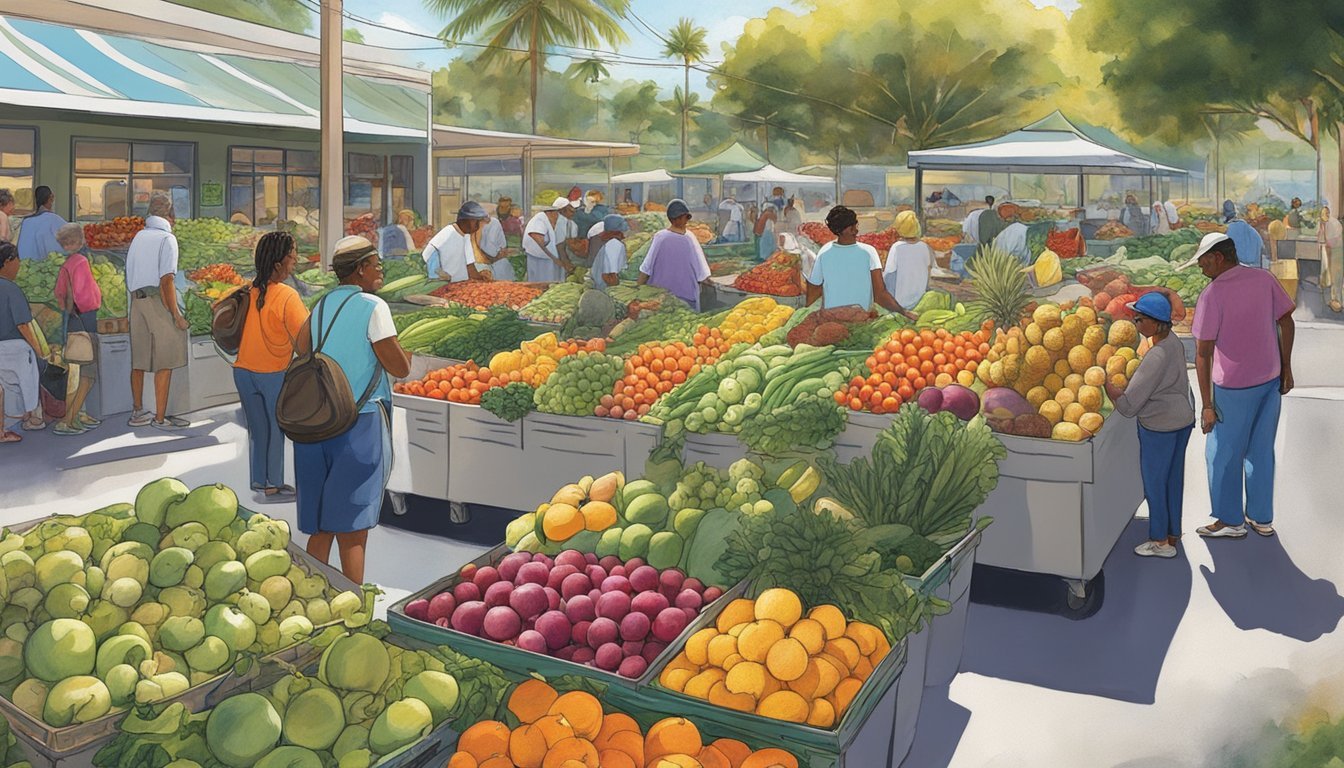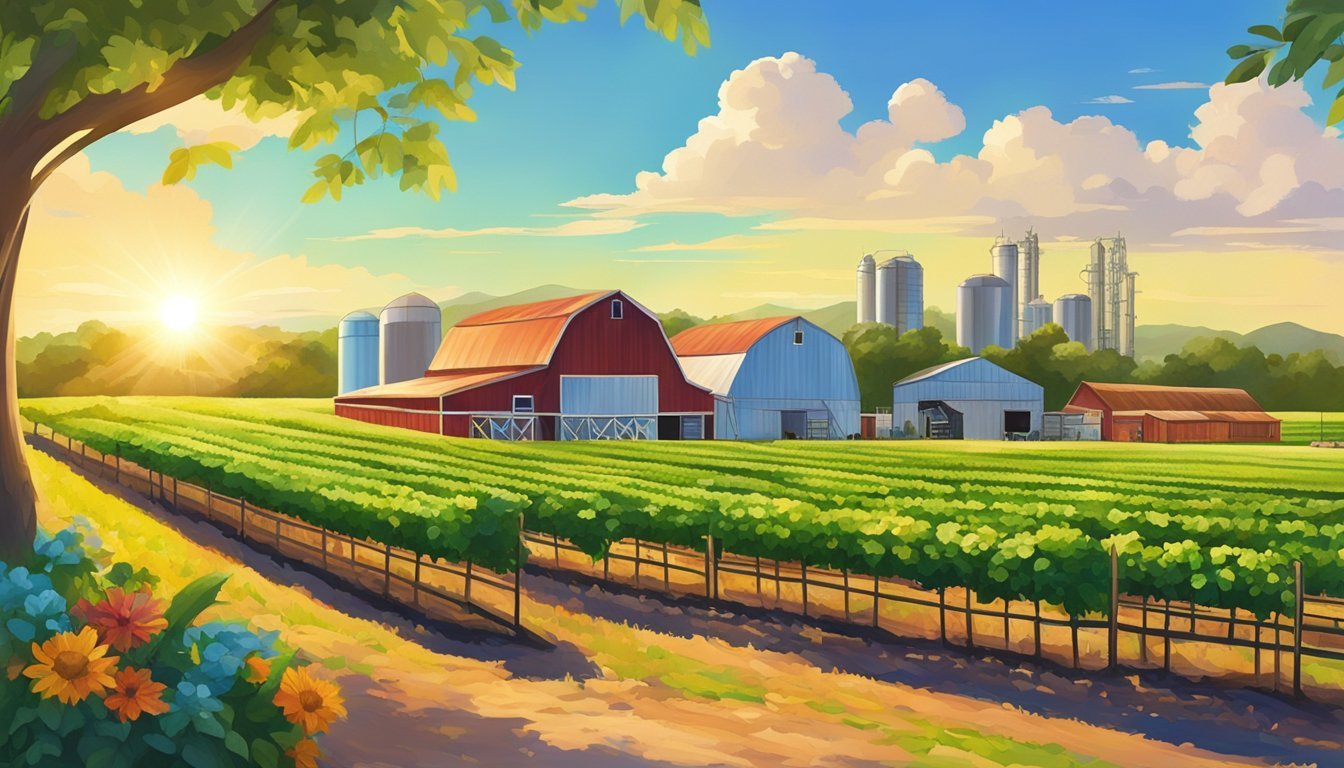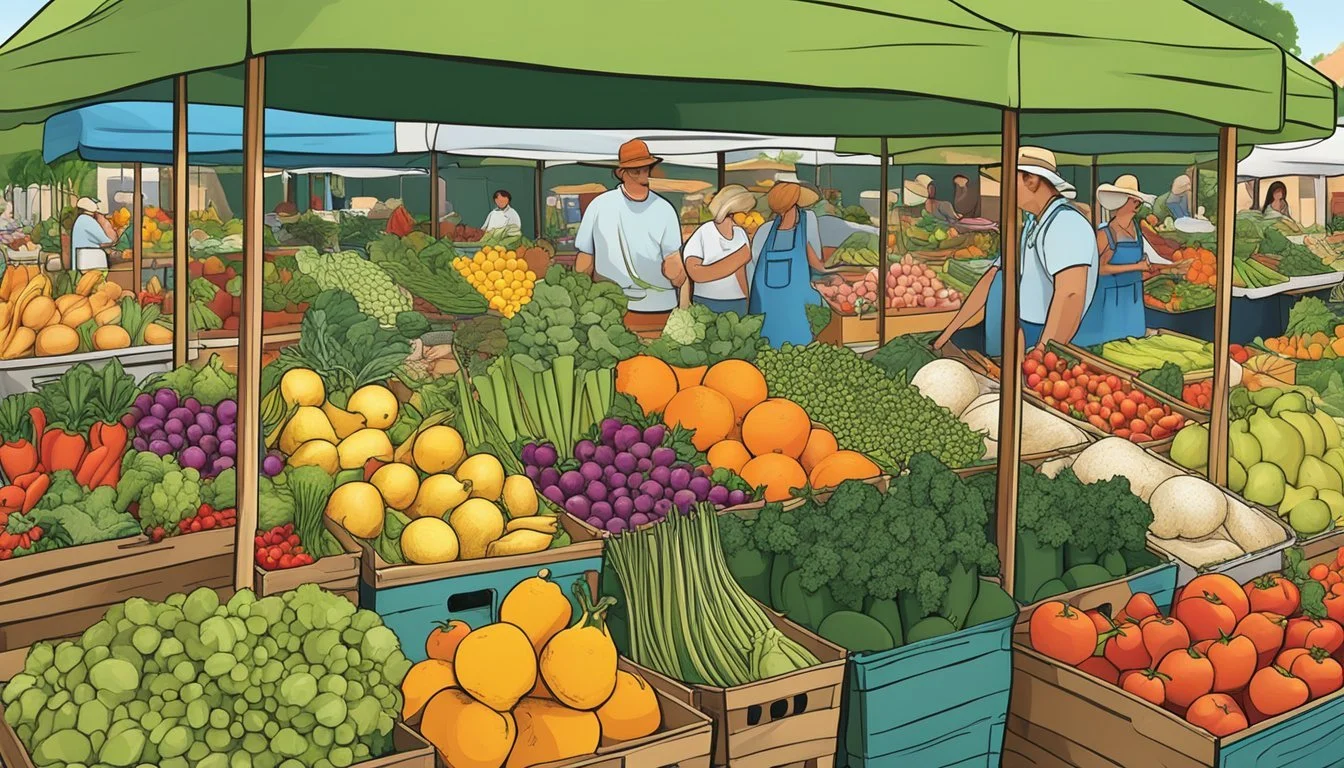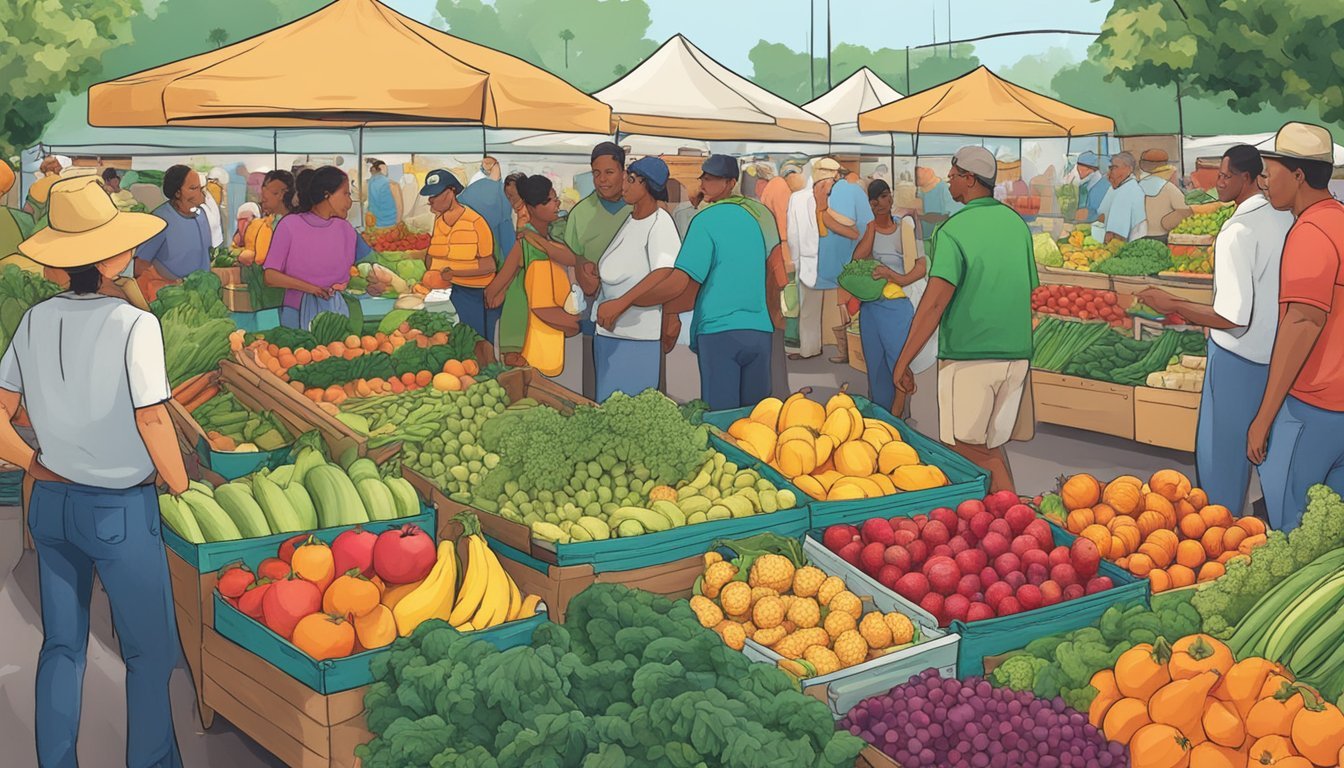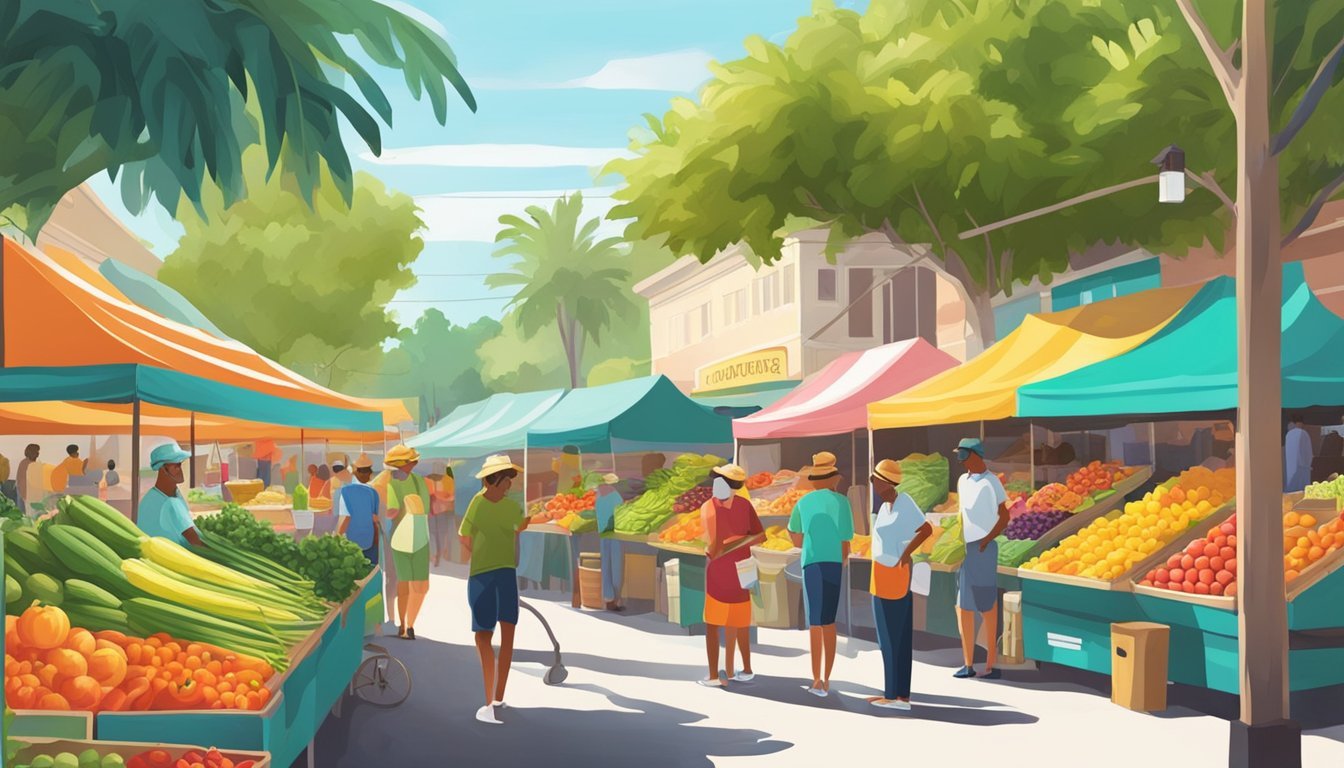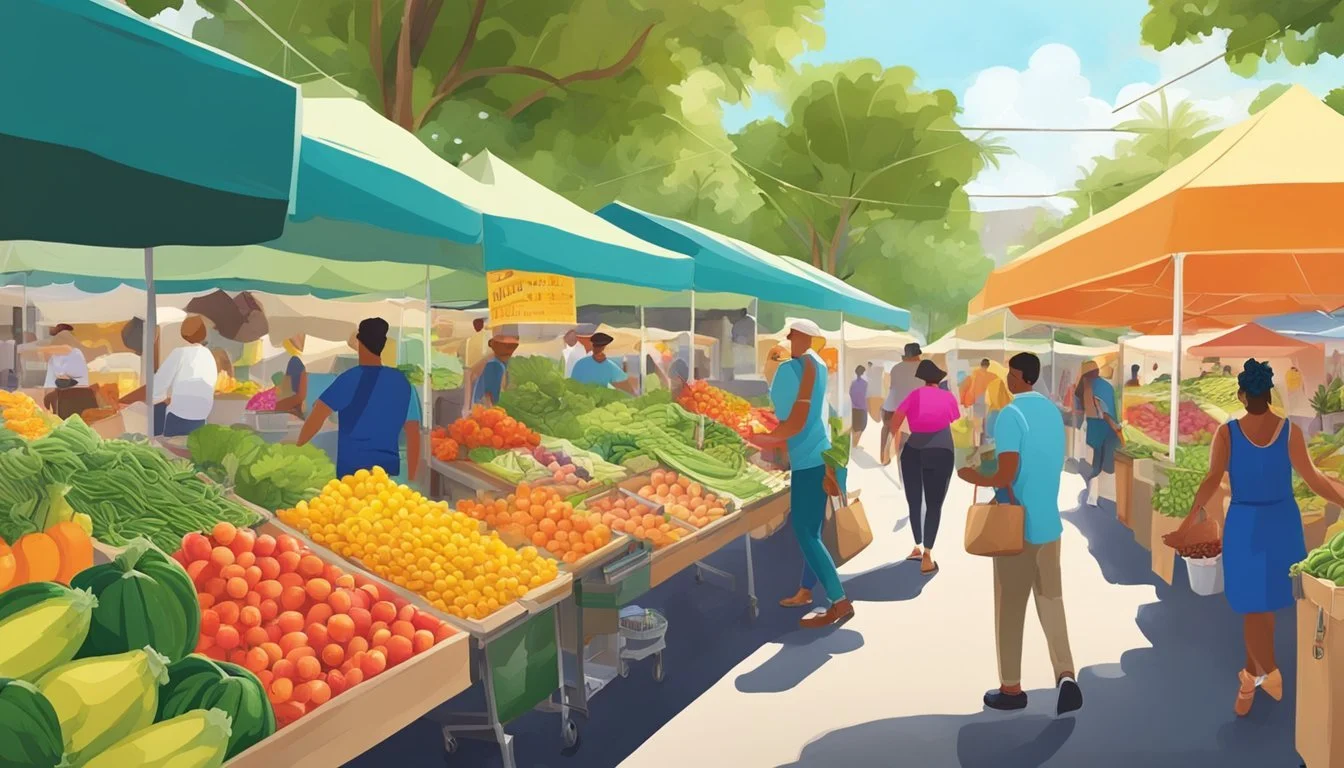Community Supported Agriculture (CSA) in Fort Lauderdale, FL
Benefits and How to Join
Community Supported Agriculture, commonly referred to as CSA, has taken root in Fort Lauderdale, Florida, offering residents a way to purchase seasonal produce directly from local farms. By subscribing to a CSA, members pay upfront for a share of the anticipated harvest, receiving regular distributions of fresh fruits and vegetables throughout the growing season. This model supports local farmers by providing them with a reliable source of income and reduces the uncertainty of crop sales.
Fort Lauderdale's CSA programs often come with the flexibility of various pickup locations and times, catering to the convenience of its members. Some CSAs also accept EBT/SNAP, making fresh, organic produce more accessible to a wider demographic. Engaging in a CSA not only fosters community engagement but also encourages a sustainable food system by minimizing the carbon footprint associated with long-distance transportation of produce.
The city’s CSA landscape is diverse, featuring single-farm produce shares and multi-farm cooperatives, which aggregate the offerings of several smaller farms. These collaborative efforts ensure a broader variety of produce and further strengthen the local agricultural community. With the increasing demand for local and organic food, CSA memberships in Fort Lauderdale present an opportunity for consumers to contribute directly to the growth and vitality of their regional food economy.
Understanding CSA in Fort Lauderdale, FL
In Fort Lauderdale, Community Supported Agriculture (CSA) represents a collaborative relationship between local consumers and farmers. CSA members or "shareholders" financially support farmers at the beginning of the growing season by purchasing shares. In return, they regularly receive fresh, locally-grown produce throughout the season.
Local Impact:
Encourages sustainable agriculture.
Operation Model:
Prepaid subscriptions: Consumers pay in advance for a season.
Harvest distribution: Shareholders get a portion of each week's harvest.
Types of Shares:
Vegetables & Fruits: Diverse range from leafy greens to seasonal fruits.
Additional offerings: Eggs, herbs, and honey.
Pick-Up Locations:
Farm stores in Fort Lauderdale.
Designated community spaces.
The CSA model in Fort Lauderdale promotes local food systems and strengthens the bond between farmers and consumers. Farmers benefit from secure early season capital, while members enjoy nutritious, fresh products and become actively engaged with the origin of their food.
Seasonality:
Sign-up usually in summer.
Harvest varies by farm.
Farmers markets complement the CSA framework, offering additional platforms for farmers to sell their produce and for consumers to access a greater variety of local goods. Participation in CSAs and shopping at farmers markets are effective ways for residents to contribute to a more resilient local food economy.
Benefits of Joining a CSA
Joining a Community Supported Agriculture (CSA) program in Fort Lauderdale, FL provides consumers with direct benefits in terms of food quality, community engagement, and environmental impact.
Access to Fresh, Local Produce
CSA members in Fort Lauderdale enjoy seasonal produce that is harvested at its peak. Farm Fresh Miami, Harpke Family Farm, and SoFla Urban Farms are examples of local providers that offer a variety of fresh vegetables and fruits. Subscribing to a CSA ensures a regular supply of farm-fresh produce, far surpassing the average shelf life and flavor profiles of grocery store selections.
Supporting Local Agriculture
Investment in local farming keeps funds within the community, reinforcing mutual support between consumers and producers. By participating in a CSA, Fort Lauderdale residents directly empower local farmers such as those at an organic farm or providers of certified organic produce to maintain and expand their operations, contributing to a robust local economy.
Health and Environmental Advantages
CSAs advocate for natural farming practices, reducing the reliance on harmful pesticides and fertilizers. Organic produce from CSAs, such as certified offerings from Harpke Family Farm, are cultivated considering both health and environmental integrity, minimizing adverse effects on the local ecosystem. This approach aligns with a growing consumer desire for foods that are not only healthy but also environmentally friendly.
The Role of Weather and Seasonality
In Fort Lauderdale, the interplay between weather patterns and the agricultural calendar is critical to the success of Community Supported Agriculture (CSA) programs.
Weather Impact on Crop Yields
Local farms in Fort Lauderdale face the challenge of adapting their farm operations to the region's subtropical climate. High temperatures and humidity can stress crops, making them more susceptible to disease and pests. Conversely, the warm winters can support the growth of a diverse range of crops year-round. For CSAs, this means that the weather significantly influences the types and quantities of produce available for their subscription shares.
Seasonal Variations and CSA Shares
The CSA model thrives on seasonal produce, offering shares of the local farm's harvest to subscribers. Fort Lauderdale's growing season is quite extensive due to its mild winters, allowing for a broad variety of crops across seasons. However, summer months can be less predictable for outdoor farming, as the risk of hurricanes and excessive rainfall could impact harvests. Despite this, many CSAs operate year-round, adjusting their share offerings to include what is seasonally optimal and ensuring a steady supply of fresh produce to their members.
Specific Farms and Markets in the Area
Fort Lauderdale is home to a variety of local farms and markets that offer fresh, community-supported agriculture shares to those interested in supporting urban agriculture and small-scale farmers.
Harpke Family Farm: Urban Agriculture
Harpke Family Farm, nestled in Dania Beach, exemplifies urban agriculture's rise in the Fort Lauderdale area. It caters to a clientele seeking fresh, locally grown produce. As an urban farm, Harpke offers a modern approach to farming in a metropolitan setting, providing residents with the option to acquire their produce directly from the source.
Small Farms and Their CSA Programs
Small farms around Fort Lauderdale, including those in Davie and Pompano Beach, play a crucial role in the local food scene. These farms often band together to offer CSA programs, allowing consumers to purchase shares of the seasonal harvest. Local farmers benefit from upfront payment, which helps with the farm's cash flow, while consumers enjoy a regular supply of fresh produce.
SoFla Urban Farms
Green Victory Garden
Sun Fresh Farm and Ranch
These small-scale operations focus on sustainable practices and offer diversity in CSA shares, which can include vegetables, fruit, eggs, and sometimes honey.
Farmers Markets Offering CSA Pickups
Farmers markets in Fort Lauderdale serve not only as bustling hubs for local goods but also as convenient pick up locations for CSA shares. The markets ensure that residents have easy access to the CSA programs from various participating farms.
Yellow Green Farmers Market in Hollywood: Weekly CSA pickups.
Marando Farms & Ranch in Fort Lauderdale: Offers an array of local products and CSA pickups.
Pompano Beach Farmers Market: A location for residents to collect their fresh produce from CSAs.
These venues support a direct connection between local farmers and the community, reinforcing the area’s commitment to sustainable food systems.
Types of CSA Products Available
Community Supported Agriculture (CSA) in Fort Lauderdale offers a variety of products that cater to the needs and preferences of the local community. These range from the more common vegetable and fruit shares to organic options and even include other farm-fresh products such as eggs, meat, and herbs.
Vegetable and Fruit Shares
Local farms in Fort Lauderdale provide CSA subscribers with shares predominantly comprising fresh, seasonal vegetables and fruits. These shares are often available for pick-up at designated farmers' markets or drop-off locations, ensuring that the local produce reaches the consumer conveniently. Subscriptions typically yield a weekly box that includes a variety of what's currently in harvest.
Organic and Non-GMO Offerings
Many CSA providers in the Fort Lauderdale area take pride in their organic and Non-GMO selections. Consumers opting for these shares receive certified organic produce, fostering a connection with organic farms committed to sustainable and chemical-free farming practices. This focus not only supports healthier lifestyles but also aligns with eco-conscious values.
Beyond Produce: Eggs, Meat, and Herbs
Beyond the staple offerings of fruits and vegetables, several CSAs broaden their assortment with additional farm products. These include farm-fresh eggs, locally sourced meat, and a variety of herbs. The inclusion of these items in CSA shares enables subscribers to experience the full bounty of what local agriculture has to offer, all sourced under the same ethical and quality standards as their produce.
Structural Aspects of CSA
Community Supported Agriculture (CSA) in Fort Lauderdale hinges on a direct, cooperative relationship between local farmers and community members, where subscribers receive regular shares of the farm's output in exchange for upfront commitment.
Understanding the Subscription Model
In Fort Lauderdale's CSA framework, memberships are purchased by consumers in advance of the growing season. This subscription fee covers a share of the anticipated harvest and can vary in size depending on the amount of produce a member wishes to receive. CSA shares encourage a strong connection between the community and local farmers, as consumers directly invest in the agricultural process.
Shared Risks and Mutual Support Principles
The CSA model is based on the concept of shared risk. If the harvest is less than expected, members receive smaller shares, thus distributing the consequences of potential agricultural setbacks. This system underscores the mutual support between the farmer and the community, with members showing solidarity through seasonal fluctuations. It fosters an environment where the community is directly engaged in the success of local agriculture.
Labor and Operation of CSA Farms
Labor on CSA farms in Fort Lauderdale can be structured in various ways. Farms may rely solely on their own personnel, while others may offer options for members to contribute through “working shares,” which can reduce the cost of membership. Operational aspects, such as planting and harvesting, involve meticulous planning to meet the expectations of CSA subscriptions while maintaining sustainable farm practices. This cooperation and involvement in farm operation strengthen the bond between community members and local farmers, promoting transparency and trust in the food system.
How To Choose a CSA in Fort Lauderdale
When consumers in Fort Lauderdale consider joining a Community Supported Agriculture (CSA) program, they must evaluate factors such as the local farm's reputation, subscription terms, and pick-up locations.
Reputation of the Local Farm: Prospective CSA members should research the origins and practices of the farm offering the CSA subscription. It is essential to choose a farm that aligns with one's ethical and sustainability values. Farms such as Scooby's Organic Farm have established themselves with a local presence and may provide information on their farming methods and crop selection through their website or social media platforms.
Subscription Options: Subscribers typically pay upfront for a season's worth of produce, which fosters a shared investment between the farmer and the consumer. Consumers should understand the terms of the subscription, including the length of the CSA season, the variety of produce offered, and whether the farm provides flexibility in the timing of the sign-up.
Pick-up Locations and Accessibility: Local pick-up points are a key consideration for convenience. Some Fort Lauderdale farms, for example, offer pickups at their farm store every Saturday. Participants should ensure the designated pick-up locations and times are manageable for them.
Type of CSA Models: Different farms have different CSA models; some offer traditional models where the farmer chooses the produce, while others may allow for more consumer choice. Here are the common types of CSA models:
Traditional Farmer’s Choice: A share typically includes a variety of produce selected by the farmer based on what's in season.
Market Style: Members have some choice in the produce they receive, selecting from available options at pick-up.
In selecting a CSA, individuals should seek clear communication from the farm about what to expect and should consider how participation in a CSA will fit into their lifestyle. A well-chosen CSA can provide fresh, locally-grown produce while supporting the Fort Lauderdale agricultural community.
Conclusion
Community Supported Agriculture plays a vital role in connecting Fort Lauderdale residents with local farmers. Through CSA programs, individuals receive fresh, locally-grown produce, contributing to both healthy living and the sustainability of local farming.
Key Benefits of CSA in Fort Lauderdale:
Freshness: Members enjoy seasonal fruits and vegetables at their peak freshness.
Support for Local Farmers: Prepaid CSA shares provide farmers with a consistent revenue stream.
Community Engagement: Participants often engage in farm activities, enhancing community connections.
Membership Flexibility: Some CSAs in the area offer flexible sign-up options, ensuring residents can join at different times of the year.
Local Impact: CSA involvement fortifies the local food system, fostering economic stability within agricultural communities.
CSA members should note that their participation is symbiotic; it requires commitment and understanding that agriculture is subject to natural variations. However, the assurance of receiving a share of the harvest reinforces a mutual trust between Fort Lauderdale citizens and their farmers.
As more individuals choose CSA programs, the bond between consumers and growers strengthens. This connection not only secures a future for local farms but also encourages a healthier, more sustainable lifestyle for the community.

